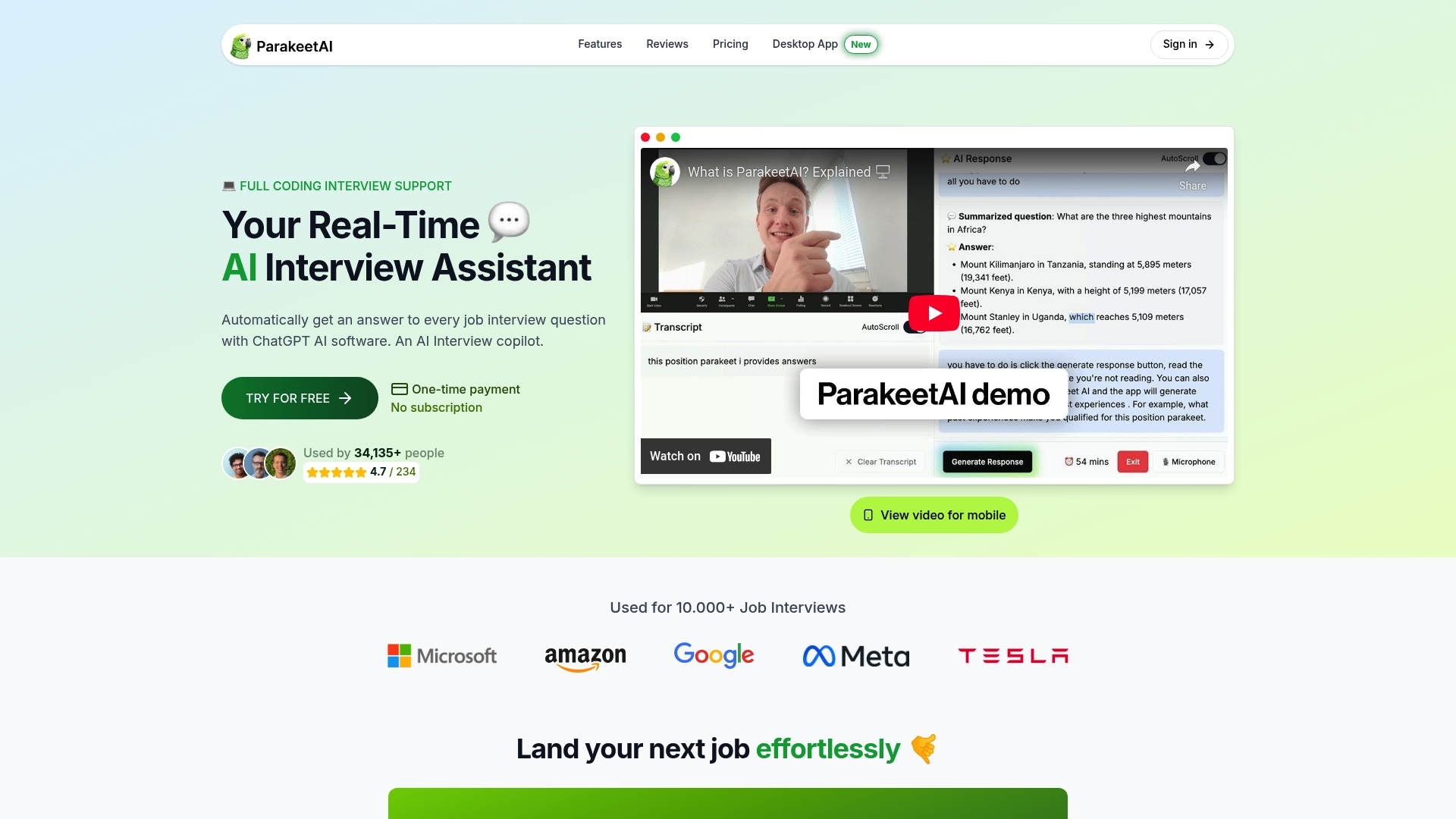Top Panel Interview Tips to Impress Every Interviewer

Nearly 60% of candidates say panel interviews are more challenging than traditional one-on-one formats. Facing multiple interviewers at once can feel intimidating whether you are a recent graduate or a seasoned professional. Understanding how to prepare confidently, engage the entire panel, and leave a memorable impression can help turn nerves into opportunity. Practical steps and smart preparation boost your chances of standing out in these high-stakes interview settings.
Table of Contents
- Step 1: Research Your Panel Interviewers And Company Background
- Step 2: Practice Responding Confidently To Panel-Style Questions
- Step 3: Strategize Your Communication And Eye Contact Techniques
- Step 4: Demonstrate Teamwork And Adaptability Throughout The Interview
- Step 5: Evaluate Your Performance And Follow Up Effectively
Quick Summary
| Key Point | Explanation |
|---|---|
| 1. Research Interviewers and Company | Investigate professional backgrounds and company information to personalize responses and demonstrate genuine interest. |
| 2. Practice Panel Responses with Others | Engage in mock interviews to refine your answers and build confidence before the actual interview. |
| 3. Use Strategic Eye Contact | Make eye contact with the person asking the question while engaging other panel members for balanced communication. |
| 4. Showcase Teamwork and Adaptability | Highlight collaborative experiences and show genuine interest in others’ views during group discussions. |
| 5. Send Personalized Follow-Up Notes | Write thank you messages referencing specific points from the interview to reinforce your interest and make a lasting impression. |
Step 1: Research your panel interviewers and company background
Knowing your panel interviewers and understanding the company’s background gives you a competitive edge before walking into the interview room. This research helps you craft personalized responses and demonstrate genuine interest in the organization.
Start by investigating each interviewer’s professional background through LinkedIn and the company website. Look for shared connections, professional interests, published work, or recent achievements that might create natural conversation points. According to expert advice from The Profs, strategically using these insights can help you “name drop” early in the interview, such as mentioning a paper they wrote or expressing interest in a topic they care about.
Dive deeper into the company’s recent developments by exploring their website, annual reports, press releases, and social media channels. Understanding their current projects, mission, and recent achievements shows you’re proactive and genuinely interested. As research indicates, interviewers expect candidates to know substantial details about their organization.
Pro Tip: Create a quick research summary sheet with key points about each interviewer and the company to review right before your interview.
Companies appreciate candidates who invest time understanding their culture and trajectory. Your research transforms you from just another applicant into a well prepared, thoughtful professional ready to contribute meaningfully.
Next, you’ll want to prepare specific questions that demonstrate your research and curiosity about the role and organization. company research guide can help you dive deeper into effective preparation strategies.
Step 2: Practice responding confidently to panel-style questions
Mastering panel interview responses requires strategic preparation and deliberate practice. Your goal is to communicate clearly, confidently, and professionally while engaging multiple interviewers simultaneously.
According to experts from The Profs, engaging in mock interviews with friends or mentors is an invaluable strategy for preparing. These practice sessions simulate the real interview environment, helping boost your confidence and refine your responses. Choose individuals who can provide honest feedback and create scenarios that mirror actual panel interview dynamics.
Focus on developing concise yet comprehensive answers that demonstrate your expertise.

Panel interviews typically involve multiple perspectives, so prepare to address different types of questions from various angles. As research indicates, panel interviews tend to be structured around commonly asked questions, so thorough preparation can significantly improve your performance.
Pro Tip: Record your mock interviews to analyze your body language, speaking pace, and response clarity.
Practice maintaining eye contact with all panel members, rotating your gaze naturally to ensure everyone feels included. Distribute your attention equally and show genuine interest in each interviewer’s perspective. Your ability to navigate multiple interactions simultaneously will set you apart.
Learning to manage panel interview dynamics takes time and intentional effort. interview confidence guide can provide additional strategies to help you feel more prepared and self assured during these challenging conversations.
As you continue preparing, remember that confidence comes from thorough preparation and genuine self understanding.
Step 3: Strategize your communication and eye contact techniques
Communicating effectively in a panel interview requires a delicate balance of confidence, engagement, and strategic interaction. Your goal is to connect with multiple interviewers while maintaining a professional and authentic presence.
According to research from the University of Edinburgh, you should aim to distribute your eye contact strategically. A recommended approach is to make 60% of your eye contact with the person asking the question and 40% with other panel members. This technique ensures you appear attentive to the immediate questioner while demonstrating engagement with the entire panel.
Communication goes beyond eye contact. As guidance from The Open University suggests, speak clearly and politely at an even pace. Avoid talking too quickly or too slowly. A genuine smile can even convey warmth and confidence over the phone. Your answers should be detailed yet succinct aim to provide thorough responses without rambling or going off topic.
Pro Tip: Practice your responses in front of a mirror to observe your facial expressions and body language.
Remember that panel interviews are conversations not interrogations. Show genuine interest in each interviewer by listening actively and responding thoughtfully. Your ability to navigate multiple perspectives demonstrates adaptability and communication skills.
Preparing for these nuanced interactions takes practice. interview tips can help you refine your approach and build confidence in panel interview settings.
As you develop these skills, youll transform from a nervous candidate into a poised professional ready to make a lasting impression.
Step 4: Demonstrate teamwork and adaptability throughout the interview
Showcasing your teamwork and adaptability during a panel interview can significantly elevate your candidacy. These soft skills are critical indicators of your potential to collaborate effectively in professional environments.
According to research from the University of York, group work skills can be demonstrated through various experiences including part time work, volunteering roles, and extracurricular activities. When discussing your background, highlight specific instances where you successfully collaborated to achieve collective goals.
As guidance from the University of Edinburgh suggests, group interviews often assess how candidates interact with others. These scenarios might involve group discussions or sequential question answering. Prepare a concise elevator pitch that introduces your professional persona and demonstrates your ability to communicate clearly and confidently.
Pro Tip: Listen actively to other candidates and build upon their ideas rather than competing or interrupting.
Demonstrate adaptability by showing flexibility in your responses and genuine curiosity about different perspectives. Avoid becoming defensive if challenged and instead view such moments as opportunities to showcase your problem solving skills and emotional intelligence.
To develop these crucial skills, understanding group interview challenges can provide deeper insights into navigating complex interpersonal dynamics.
Remember that teamwork is about creating value together not just individual performance.
Step 5: Evaluate your performance and follow up effectively
Transforming your panel interview experience into a strategic opportunity requires thoughtful reflection and professional follow up. Your post interview actions can significantly impact your overall candidacy.
According to research from Mold Stud, 90% of interviewers appreciate follow up notes. Send a personalized thank you message within 24 hours that references specific conversation points. This demonstrates active listening and genuine interest in the role.
Immediately after the interview, conduct an honest self assessment. Reflect on your responses consider what went well and identify areas for improvement. Write down specific moments where you could have articulated your thoughts more clearly or provided more comprehensive examples.
Pro Tip: Record brief notes about each interviewer immediately after the meeting to help craft personalized follow up messages.
As guidance from The Open University suggests, thank the interviewers for their time and confirm the next steps in the hiring process. Be professional concise and appreciative in your communication. Your follow up is an additional opportunity to showcase your communication skills and enthusiasm.
management skills can provide additional strategies for professional communication and post interview etiquette.
Remember that following up is not just a formality but a strategic extension of your interview performance.
Here’s a summary of effective panel interview preparation steps and key strategies:
| Step | Focus Area | Key Strategies |
|---|---|---|
| 1 | Research Interviewers & Company | LinkedIn profiles Website research Summary sheet |
| 2 | Practice Responses | Mock interviews Recording practice Feedback from peers |
| 3 | Communication & Eye Contact | Strategic eye contact Clear speech Positive body language |
| 4 | Teamwork & Adaptability | Highlight group work Active listening Flexible responses |
| 5 | Evaluate & Follow Up | Self-assessment Personalized thank you Note key moments |
Take Control of Your Panel Interview Success Today
Navigating panel interviews can feel overwhelming when you face multiple interviewers each with their own focus and style. This article highlights the core challenges candidates face such as managing eye contact, practicing confident responses, and demonstrating teamwork under pressure. If you want to eliminate uncertainty, sharpen your communication skills, and respond with clarity in real time, technology can be your secret advantage.

Experience the power of a real-time AI job interview assistant at Parakeet AI. Our platform listens carefully to every question during practice sessions or live prep and delivers perfectly tailored answers you can learn from. Combine this with expert tips like those shared in our interview confidence guide and interview tips for a comprehensive preparation edge. Don’t wait until the pressure mounts; prepare with precision and confidence now by visiting Parakeet AI and transforming the way you prepare for panel interviews.
Frequently Asked Questions
How can I effectively research my panel interviewers and company before the interview?
To effectively research your panel interviewers and company, start by reviewing their LinkedIn profiles and the company website for insights on their backgrounds and recent achievements. Create a summary sheet with key details, including shared interests or notable projects, to help guide your conversation during the interview.
What are the best practices for practicing my responses for a panel interview?
Best practices for practicing responses include conducting mock interviews with friends or mentors who can provide honest feedback. Record yourself during these sessions to analyze your body language and speech pace, helping you refine your answers before the actual interview.
How should I manage eye contact during a panel interview?
During a panel interview, aim to distribute your eye contact by making about 60% of it towards the person asking the question and 40% towards the other panel members. This approach ensures that you engage the entire panel while maintaining focus on the questioner, creating a more inclusive and attentive atmosphere.
What specific skills should I demonstrate to showcase my teamwork in a panel interview?
To showcase your teamwork skills, highlight past experiences where you collaborated successfully with others, such as in group projects or volunteer roles. Use concise examples to illustrate how you contributed to collective goals and engaged with team members effectively.
How can I follow up after my panel interview to leave a positive impression?
To leave a positive impression after your panel interview, send a personalized thank you message within 24 hours that references specific topics you discussed. Reflect on your performance in the interview and make note of key moments to help tailor your follow-up communication.
What steps should I take to assess my performance after a panel interview?
After a panel interview, conduct a self-assessment by reflecting on what went well and identifying areas for improvement. Write down specific instances where your responses could have been clearer, and use this information to enhance your preparation for future interviews.




